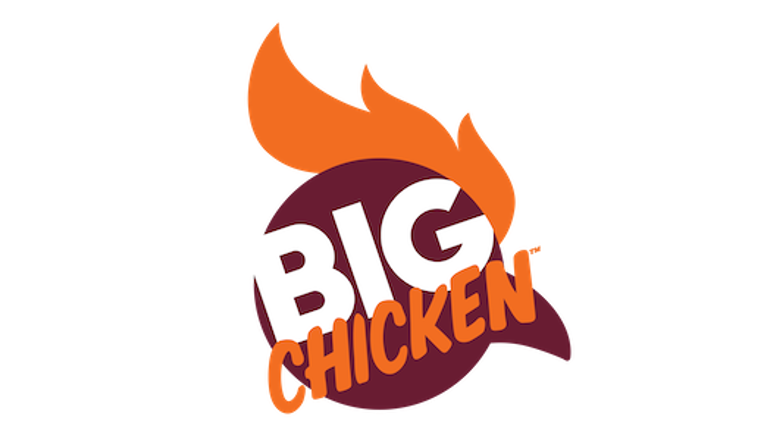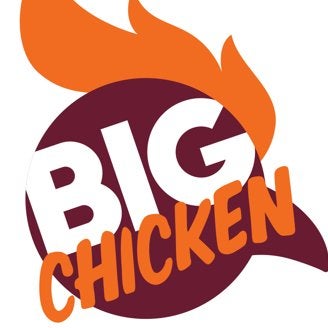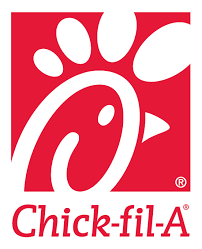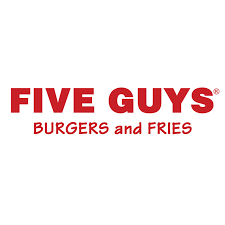Big Chicken Franchise in 2025: Costs, Fee & FDD
Discover how the Big Chicken franchise, co-founded by Shaquille O’Neal, combines celebrity appeal with bold flavors, making it a standout in the fast-casual market. Learn about franchise costs, potential earnings, and the unique support system behind this growing brand.

Table of Contents:
Big Chicken is a fast-casual restaurant franchise that brings the larger-than-life personality of NBA Hall of Famer Shaquille O’Neal to the dining table. Founded in 2018, the brand has become a culinary powerhouse thanks to a partnership between Shaq, JRS Hospitality, and Authentic Brands Group. The fusion of O’Neal’s childhood comfort foods with modern flavors has quickly positioned Big Chicken restaurant franchise as a standout in the crowded fast-casual market. The first Big Chicken restaurant opened with Shaq’s celebrity status and his love for big, bold flavors, garnering significant attention and making it a unique and appealing option for franchisees.
At the heart of Big Chicken’s menu are crispy chicken sandwiches and chicken tenders, but it doesn’t stop there. The brand elevates comfort food to the next level with innovative dishes like Cheez-It® crusted mac n’ cheese and hand-crafted ice cream shakes. Big Chicken caters to a broad audience, appealing to both comfort food enthusiasts and those seeking something a bit more adventurous. The menu’s blend of familiarity and novelty attracts families, millennials, and sports fans alike, creating a diverse and loyal customer base.
Since its inception, Big Chicken has expanded rapidly. The franchise operates multiple locations across the U.S., with a growing presence in various states, including Las Vegas and West Texas. While specific numbers may fluctuate, the brand’s strategic growth plan aims to bring Big Chicken to major cities and suburban areas, ensuring that the brand’s signature flavors reach as wide an audience as possible. Big Chicken also operates multiple locations on Carnival Cruise ships. The daily customer base continues to grow as more people discover the charm and flavors of Big Chicken.
For franchisees, Big Chicken offers robust support. The franchise provides comprehensive training programs covering everything from operations to marketing, ensuring franchisees have the tools to succeed. With a strong support system and the backing of industry giants like Authentic Brands Group, franchisees can feel confident in their investment. Additionally, Big Chicken’s connection to Shaquille O’Neal offers unique marketing opportunities, adding a star-powered boost to the brand’s visibility.

Big Chicken Franchise Insights
- Big Chicken has the backing of Hall of Famer Shaquille O’Neal, which gives the brand a significant marketing edge and celebrity appeal—perfect for driving foot traffic.
- The brand’s unique menu, featuring items like Cheez-It® crusted mac n’ cheese and hand-crafted shakes, differentiates it from traditional fast-casual chicken concepts.
- With a menu that blends comfort food and trendy flavors, Big Chicken attracts a wide range of customers, from families to foodies, contributing to a diverse and loyal customer base.
- Shaquille O’Neal opened a Big Chicken restaurant at UBS Arena on November 20, 2021.
Big Chicken Franchise Key indicators
Unit Growth YOY (%)
234%
vs industry 0%
Total U.S. Franchised Units
10
3-Year Failure Rate
0%
vs industry 10%
How much does it cost to open a Big Chicken franchise?
Understanding the potential investment size and capital requirements is crucial when considering opening a Big Chicken franchise. These financial commitments, including initial franchise fees, equipment costs, and ongoing operational expenses, impact the feasibility and profitability of the venture. Thoroughly evaluating these factors ensures that potential franchisees are prepared for the financial responsibilities and can make informed decisions about their ability to sustain and grow the business, ultimately contributing to long-term success.
Min & Max Investment
Opening a Big Chicken franchise involves several key costs, which are outlined in Item 7 of the Franchise Disclosure Document (FDD). You can see a breakdown of the costs to open a Big Chicken below from the most recent Item 7 below:
| Type of Expenditure | Minimum Investment | Maximum Investment |
|---|---|---|
| Initial Franchise Fee | $40,000 | $40,000 |
| Rent and Lease Security Deposit | $0 | $60,000 |
| Building and Health Permits | $5,000 | $35,000 |
| Architect & Design | $25,000 | $60,000 |
| Other Professional Services | $5,000 | $15,000 |
| Travel and Initial Training | $2,500 | $20,000 |
| Building, Construction, and Leasehold Improvements | $300,000 | $650,000 |
| Equipment | $180,000 | $350,000 |
| Smallwares and Supplies | $20,500 | $25,000 |
| Interior and Exterior Signage, Menu Boards and Graphics | $27,000 | $55,000 |
| Computer, POS, & Audio/Video Equipment | $25,000 | $40,000 |
| Opening Inventory | $15,000 | $50,000 |
| Grand Opening Expenses | $10,000 | $10,000 |
| Insurance | $1,500 | $3,500 |
| Beer, Wine and/or Liquor License | $0 | $12,000 |
| Additional Funds - 3 Months | $25,000 | $100,000 |
| Total: | $681,500 | $1,525,500 |
Item 7 in the Franchise Disclosure Document (FDD) is the “Estimated Initial Investment” section. It outlines the total costs a franchisee can expect to incur when starting a franchise, including the initial franchise fee, equipment, inventory, real estate, and other startup expenses. This section is crucial because it provides potential franchisees with a detailed understanding of the financial commitment required, helping them assess affordability and plan their investment strategy effectively.
Required Capital
When considering an investment in Big Chicken or a similar fast-casual restaurant franchise, it’s essential to understand the financial requirements beyond the franchise fee. Here’s a breakdown of the estimated capital, liquid assets, and net worth typically needed to open such a franchise:
- Required Capital To open a Big Chicken franchise, you’ll likely need a total investment ranging from $682,000 to $1.53 million. This estimate includes costs for leasehold improvements, equipment, signage, initial inventory, and enough working capital. Assuming that you will finance your franchise investment, you should plan to have 20% of the total investment amount in the form of equity (cash) for the investment.
- Liquid Assets Requirement For a fast-casual restaurant franchise like Big Chicken, it’s typical to have liquid assets of at least $250,000 to $500,000. Liquid assets ensure you can cover upfront costs and manage cash flow during the initial months of operation.
- Net Worth Requirement A strong financial profile is critical for securing financing and ensuring long-term success. Most franchises in this space recommend a minimum net worth of $1,000,000 to $2,000,000, depending on the brand and location. This accounts for both liquid assets and other assets like real estate or investments.
How much does a Big Chicken franchise owner make?
Calculating the salary of a Big Chicken franchise owner involves analyzing gross sales to determine total revenue, assessing operational efficiency to understand profit margins, and accounting for franchisor fees and additional expenses such as rent, utilities, and payroll. Effective management of these factors can significantly impact the profitability and financial success of a Big Chicken franchise owner. This comprehensive financial analysis helps estimate net profits, from which the owner’s salary can be derived. A clear understanding of these factors ensures accurate salary projections and financial planning for sustainable business operations.
Big Chicken Revenue & Gross Sales
While median gross sales figures for Big Chicken aren’t publicly available, the brand’s strong market presence and rapid expansion suggest that it performs well within the fast-casual segment. The combination of Shaquille O’Neal’s celebrity influence, a unique and appealing menu, and a growing number of locations contribute to its increasing popularity and likely strong sales performance.
Fast-casual restaurants like Big Chicken typically see solid revenue streams, especially in high-traffic areas and urban locations.
Which key factors impact the average revenue performance of Big Chicken franchisees?
The performance of U.S. franchisee median gross sales for Big Chicken is likely influenced by several key factors. The brand’s unique positioning, driven by Shaquille O’Neal’s high profile and the distinctive menu offerings, attracts a wide customer base and generates significant foot traffic. Prime location choices, such as high-visibility urban areas and popular entertainment districts, further boost sales potential. Additionally, effective marketing strategies and the appeal of innovative comfort food help maintain strong customer engagement. The support system provided by the franchisor, including comprehensive training and operational guidance, ensures that franchisees can optimize their performance and adapt to market demands effectively.
Big Chicken Franchise Operational Costs
When opening a Big Chicken franchise, it’s crucial to consider several key ongoing operational costs that will impact your financial planning. These costs are essential for running the day-to-day operations and maintaining the quality and consistency of the franchise.
- Food and Beverage Costs Regular purchases of high-quality ingredients for menu items like chicken sandwiches, mac n’ cheese, and shakes are a significant ongoing expense. Efficient inventory management is crucial to control these costs.
- Labor Costs This includes wages for kitchen staff, front-of-house employees, and management. Staffing levels and labor rates will vary based on location and operational needs.
- Utilities Monthly expenses for utilities such as electricity, water, and gas are necessary to keep the restaurant running smoothly and efficiently.
- Maintenance and Repairs Regular maintenance of kitchen equipment and restaurant facilities ensures operational efficiency and prevents unexpected breakdowns.
- Supplies This encompasses non-food items such as cleaning supplies, disposable utensils, and packaging materials needed for daily operations.
Understanding these costs will help you budget effectively and ensure the smooth operation of your Big Chicken franchise.
Big Chicken Franchise Fees
When considering the financial aspects of opening a Big Chicken franchise, it’s essential to account for several key ongoing fees beyond the initial investment. Understanding these fees will help you budget effectively and ensure a smooth operational experience.
- Royalty Fee Big Chicken charges a 6% royalty fee on gross sales, payable on a weekly basis. This fee supports ongoing franchisor support and brand development.
- Brand Marketing Fee In addition to the royalty fee, there is a 2% brand marketing fee on gross sales. This fee is also payable weekly and contributes to national marketing campaigns that drive brand visibility and customer traffic.
- Local Advertising A 1% fee of gross sales is allocated for local advertising. This helps franchisees tailor their marketing efforts to the local market, boosting community engagement and brand presence.
- Additional Fees There are additional fees besides the royalty, national and local marketing fees for training programs, technology, and other items provided by Big Chicken that may be applied.
By factoring in these ongoing fees, you can better plan your budget and ensure that you have the resources needed for successful franchise management.
Big Chicken Franchise Earnings
While specific earnings data for Big Chicken franchises is not available, we can provide an informed overview based on industry standards and franchise characteristics. Fast-casual restaurant franchises like Big Chicken typically benefit from strong consumer demand for high-quality, unique dining experiences. Given the brand’s distinctive menu and the high profile of its founder, franchises in this sector often achieve robust sales performance, particularly in high-traffic locations. Effective operational management, strategic marketing, and a well-placed restaurant can contribute to a favorable financial outcome.
The potential earnings for Big Chicken franchisees would also be influenced by factors such as local market conditions, competition, and operational efficiency. In general, franchises with a popular and innovative menu, strong brand recognition, and solid franchisee support systems tend to generate healthy revenue streams.
How to Open a Big Chicken Franchise
Embarking on the journey to become a Big Chicken franchisee involves several crucial steps that ensure you are well-prepared to start your business. This process helps both you and the franchisor assess mutual compatibility and sets the stage for a successful franchise operation.
- Initial Inquiry You or your franchise specialist submits an initial inquiry basic information about your interest and background. You should also conduct thorough research on the franchise, including seeing all of the information available on the Vetted Biz franchise intelligence platform, including access to the most recent Franchise Disclosure Document (FDD).
- Application Submission Complete and submit a franchise application form. This includes providing detailed personal and financial information to help the franchisor assess your suitability as a franchisee.
- Franchise Interview Participate in interviews or meetings with the franchisor’s team. This helps both parties evaluate if there is a good fit and allows you to ask detailed questions about the business.
- Financial Review and Approval Submit your financial statements and undergo a financial review to ensure you meet the capital and net worth requirements. The franchisor will assess your financial capability to sustain and grow the franchise.
- Site Selection and Lease Negotiation Work with the franchisor to select a suitable location for your restaurant. The franchisor may assist in the site selection process and provide guidance on lease negotiations.
- Training and Preparation Attend the franchisor’s training program, which covers operations, marketing, and management. This training prepares you and your team for the day-to-day running of the business.
- Store Build-Out and Equipment Installation Oversee the construction and fit-out of your restaurant according to Big Chicken’s specifications. This includes installing kitchen equipment, signage, and interior furnishings.
- Grand Opening Coordinate with the franchisor to plan and execute a successful grand opening event. This is a critical step to generate initial buzz and attract customers to your new restaurant.
- Ongoing Support Once operational, continue to receive support from the franchisor in areas like marketing, operations, and ongoing training to ensure the continued success of your franchise.
Pros & Cons
Pros
Celebrity Endorsement: The backing of Shaquille O’Neal provides significant brand recognition and marketing leverage, which can attract customers and boost initial interest.
Unique Menu Offerings: Big Chicken’s distinctive menu items, such as Cheez-It® crusted mac n’ cheese, differentiate it from competitors and can appeal to a broad customer base.
Rapid Growth Potential: With its recent entry into the market and expansion plans, there may be ample opportunities for new franchise locations and a chance to be part of a growing brand.
Cons
Competitive Market: The fast-casual restaurant sector is highly competitive, which means standing out and capturing market share can be challenging.
Location Dependency: The success of a Big Chicken franchise can be heavily influenced by the choice of location, making site selection critical to performance.
Brand New Concept: As a relatively new brand, Big Chicken may face challenges in establishing itself firmly in the market compared to more established competitors with a longer track record of success.



